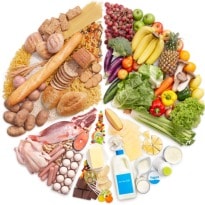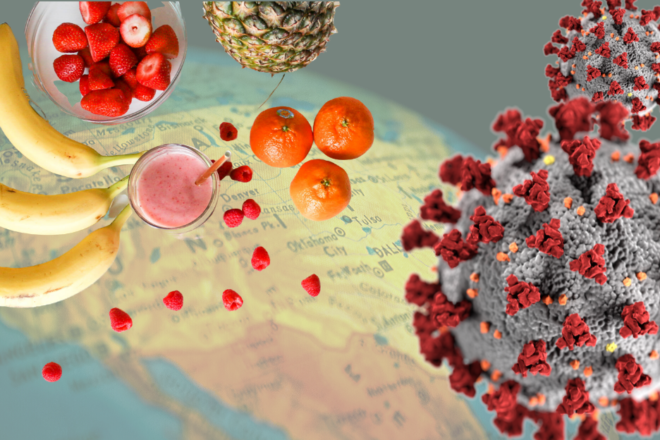FOOD is essential – It provides vital nutrients for survival and helps the body function and stay healthy. Nutrition is how food affects the health of the body.
WHAT IS NUTRITION?
Nutrition is defined as the process by which an animal or plant takes in and utilises food substances. Essential nutrients include protein, carbohydrate, fat, minerals, vitamins and electrolytes.

WHY IS IT IMPORTANT?
Nutrition is important for growth and development, health and well being. Everyone should have a proper and healthy diet, for, it contributes in preventing future illness and improving quality and length of life. Our nutritional status is the state of our health as determined by what we eat. So it is vital to have awareness of the most healthy foods to ensure a wide range of nutrients in the diet. A balanced diet is the secret to healthy eating. Following are some healthy foods and their benfits.
Nuts, pulses and grains –
| Nuts, pulses and grains | Benefits |
| Almonds | Vitamin E, Iron, Calcium, Fibre. |
| Brazil Nuts | Protein, Carbohydrates, Zinc. |
| Lentils | Fibre, Magnesium, Potassium. |
| Oat Meal | Fibre, Potassium |
| Wheat gram | Fibre, Folic Acid, Zinc |
| Fruits and Vegetables | Benefits |
| Broccoli | Fibre, Calcium, Potassium |
| Apples | Source of Antioxidants. |
| Leafy green vegetables | Zinc, Copper, Vitamin A, Vitamin B6, Vitamin C. |
| Sweet Potatoes | Vitamin A, Vitamin C, Potassium |
| Avocados | Vitamin B, Vitamin K and Vitamin E |
| Fish, meat and eggs | Benefits |
| Oily Fish | Omega 3 fatty acid |
| Chicken | Excellent source of protein. |
| Eggs | Protein, Vitamin B2, Vitamin B12 |
So, these were some of the healthy foods with their nutritional benefits. We can see that healthy children learn better. People with adequate nutrition are relatively more productive and can create opportunities to gradually break the cycles of poverty and hunger.
MALNUTRITION
Malnutrition is one of the biggest problems, which, in every form, presents significant threats to human health. Today the world faces a double burden of malnutrition that includes both under-nutrition and overweight, especially in low and middle income countries.
WHO is providing scientific advice and decision making tools that can help countries take action to address all forms of malnutrition to support health and well being for all, at all ages.
NUTRITION DURING COVID-19

People who eat a well-balanced diet tend to be healthier with stronger immune system and lower risk of chronic illness and infectious diseases. So, people should eat fresh and unprocessed foods everyday like, fruits, vegetables, nuts, whole grains, foods from animal sources etc. One should avoid sugar, fat and salt.
Water intake should be increased. As water is essential for life, one should drink enough water everyday. Water transports nutrients and compounds in blood, regulates the body temperature, gets rid of waste and lubricates and cushions the joints. Eat moderate amounts of fat and oil. One should consume unsaturated fats which are found in fish, nuts, sunflower etc. Instead of red meat it is better to consume white meat. Avoid industrially produced trans fats. These are often found in processed food, fast food, snack food, pies, cookies etc.
One should avoid eating out which would reduce the rate of contact with other people and lower the chance of being exposed to Covid-19.
NUTRITION AT ITS BEST

Good nutrition is fundamental for children’s current and future health, as well as their development and learning. The benefits of developing healthy dietary and lifestyle patterns from an early age onward can positively have an impact on peoples’ nutrition and health throughout their adult lives and enhance the productivity of individuals and nations. Nutritional education is an important element in an overall strategy aimed at improving food security and preventing all forms of malnutrition. Schools are ideal settings for promoting lifelong healthy eating habits and lifestyles. Eating healthy means eating a variety of foods that meet our daily requirements. As, nutrition affects the growth and development of a person, so, at least, the development of international standards and national legislation, are essential to protect and promote national food security and public health. Civil Society will have to play a more active role. The concept of food security must be recaptured and reframed in public and environmental terms.















































